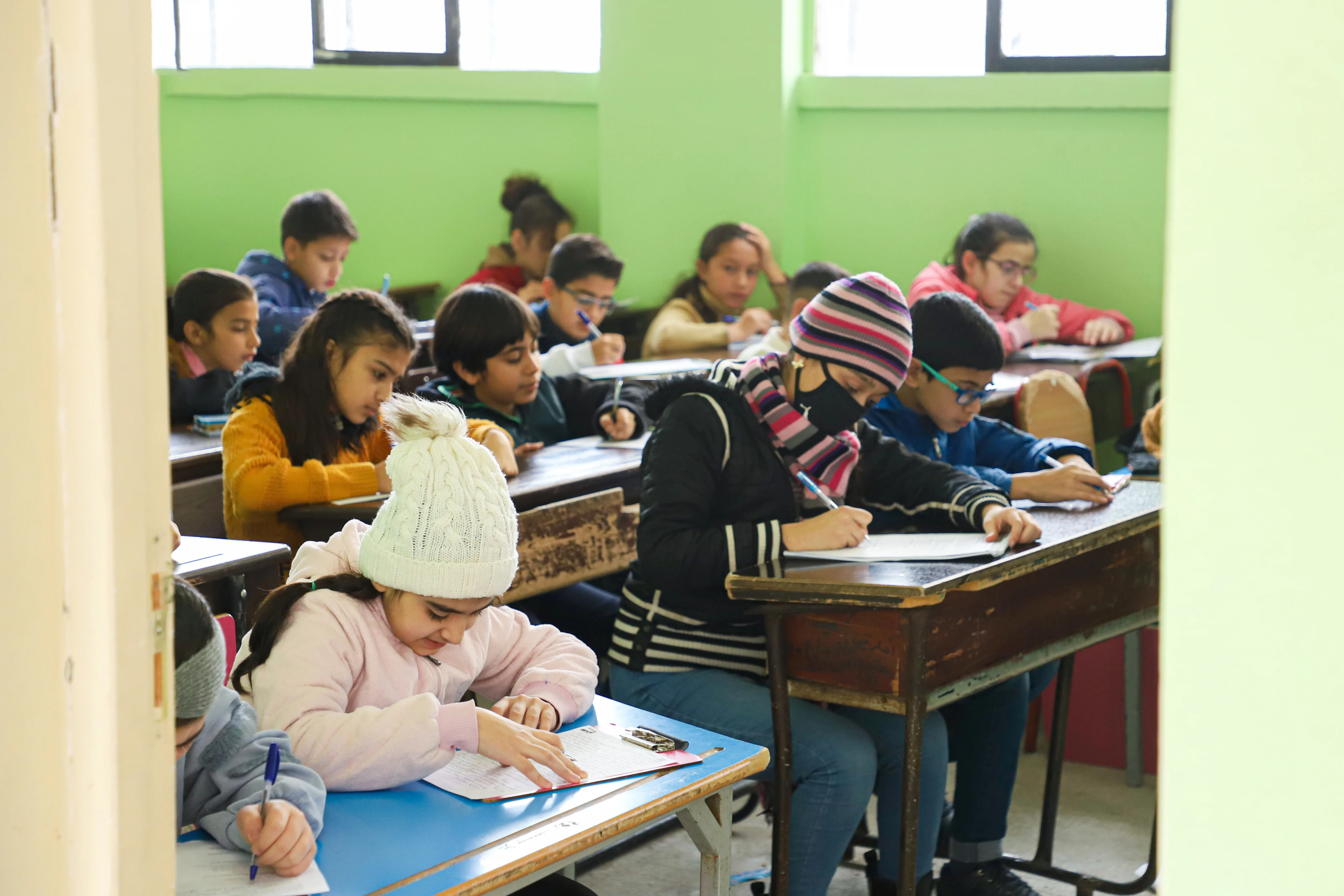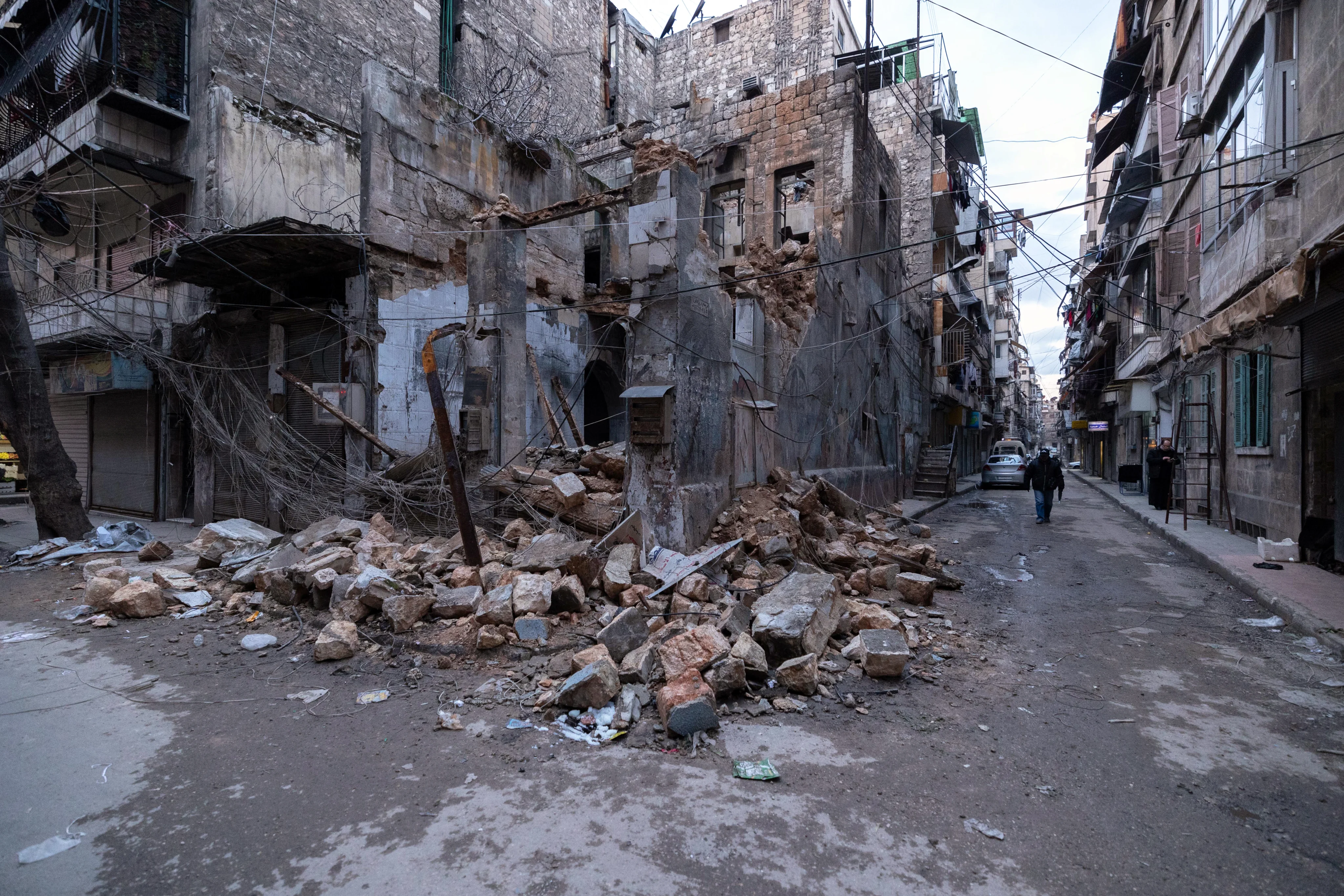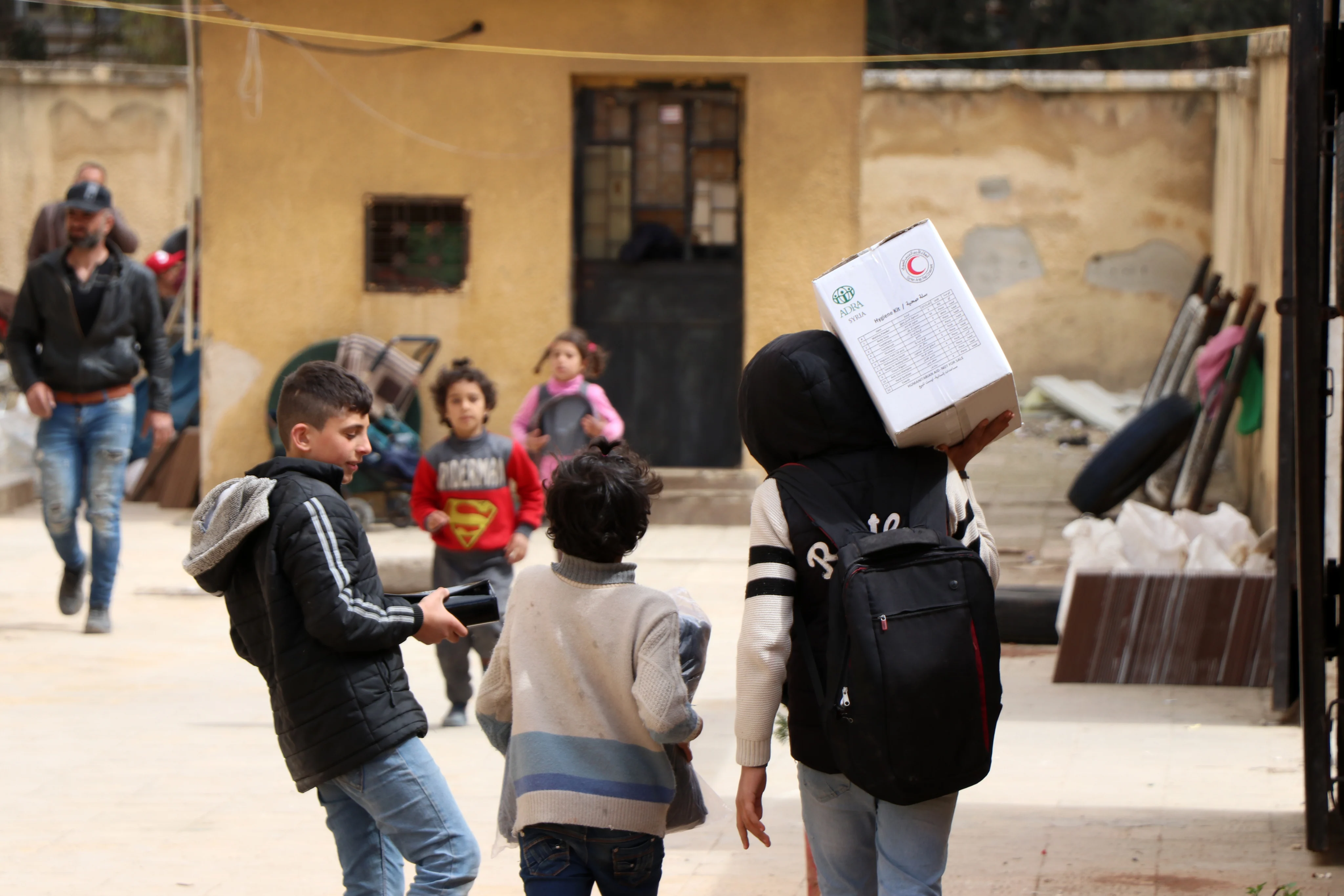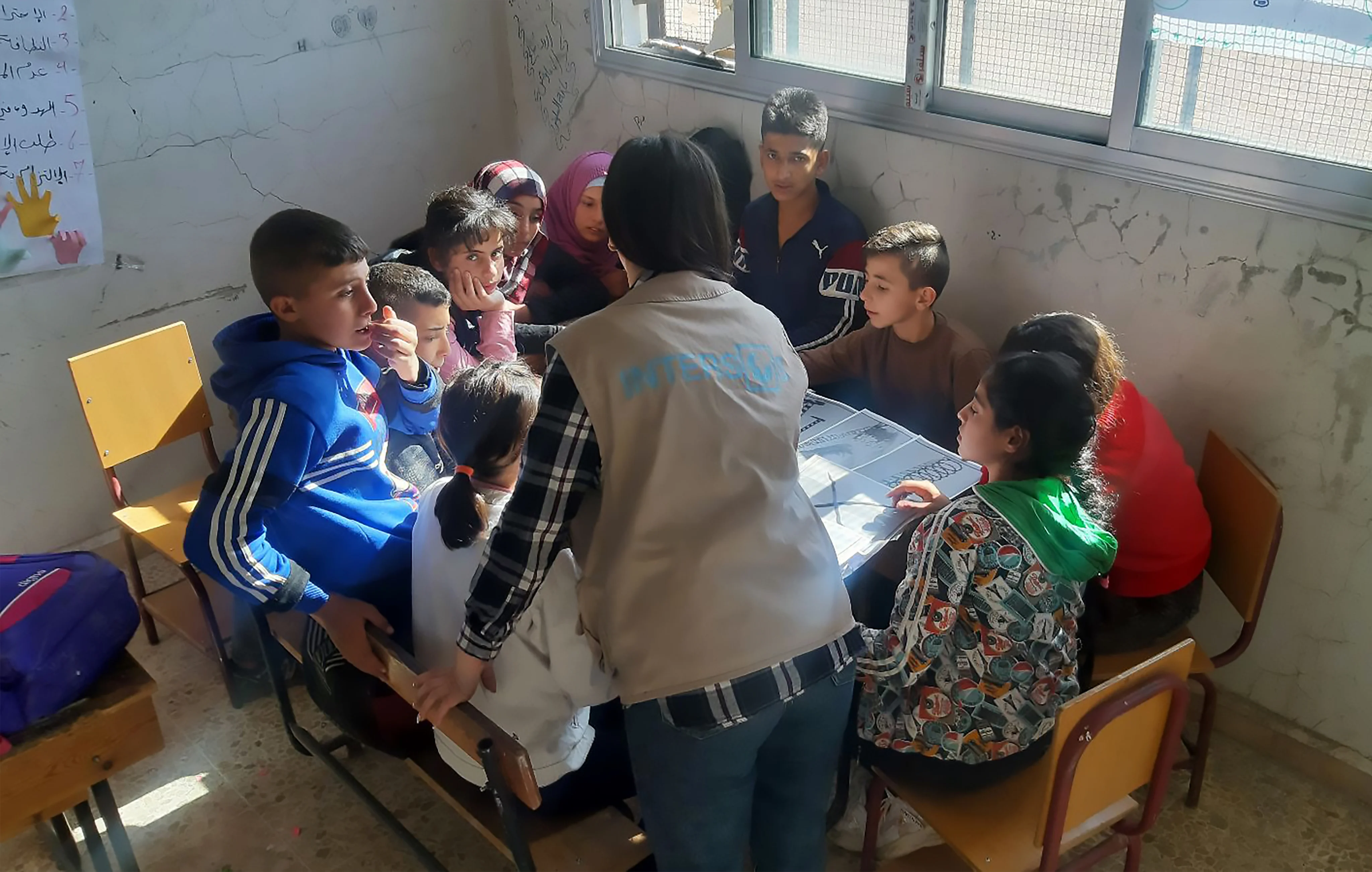Renewed hope for Rena
“They helped me believe in myself, speak up, and play with my classmates. My dreams are brighter, and I'm determined to face whatever comes my way with a smile.”

14-year-old Rena’s outlook wasn’t always so sunny. Her father passed away four years ago, leaving her family in a tough financial situation and things became even more difficult when, in February 2023, two earthquakes hit Syria and Turkiye, causing 5,900 deaths, injuring more than 11,800 people, and leaving widespread devastation with more than 2,260 buildings reportedly destroyed, thousands of families displaced and vital services disrupted.
“My mother and I had to leave our village due to the earthquake. Our financial situation is bad, and living in a run-down house just adds to the stress.”
The challenges of displacement were further exacerbated by the fact that Rena suffers a congenital heart condition that not only impacts her physical health but also affects her self-esteem. “I have a heart condition that has left me with visible veins on my hand, making me feel different and isolated, especially at school. I always hide them so that no one can see them, but I am treated badly by those around me, and they always say, ‘how pitiful you are,’ and sometimes I'm faced with violence,” she shares. “I'm in pain because of my health, and the surgery to fix it seems like an impossible dream. I feel hopeless since my mother is not able to cover the cost of the surgery.”
Over the past year, alongside partners, Plan International has been carrying out a two-phase emergency response.
During phase one, our partners Middle East Council of Churches (MECC) distributed food parcels and hygiene kits, while ADRA focused on repairing WASH facilities and distributing hygiene, cleaning, and dignity kits.
During phase 2, the Adventist Development and Relief Agency (ADRA) rehabilitated water networks and schools, continuing to deliver hygiene kits, while our partnership with Italy’s Association of Volunteers for International Service (AVSI), although not fully initiated, planned activities to provide psychosocial support, rehabilitate child-friendly spaces, distribute monthly cash for protection, conduct catch-up classes, and implement recreational and educational programmes.

Part of this has been partnering with INTERSOS, an international humanitarian organisation, to implement a 12-month integrated Education in Emergencies (EiE) and child protection project. Focusing on Syria’s Hamra and Idleb Governorates, the project’s involves rehabilitating schools, providing furniture and teaching materials, offering remedial and self-learning classes, and establishing a mobile education team, to reach children whose education has been disrupted.
Child protection is another important aspect of the project, and INTERSOS has disseminated information, provided psychological first aid, built capacity amongst teachers and parents, and offered psychosocial support for children and adults.

Struggling with feelings of isolation, Rena was grateful for the opportunity to participate in psychological counselling, remedial classes and recreational activities offered by the project, “At school, I couldn't connect with anyone. I cried a lot and felt like an outsider, avoiding speaking or playing like the other kids. It was lonely, and I longed for friends.” shares Rena.
“That's when Plan International and INTERSOS came into my life, inviting me to activities that changed everything.”
Rena was referred to a child protection case manager who facilitated her integration into a new social circle and helped increase her self-confidence. She has since made new friends, gained acceptance, and improved her social interactions
“They helped me believe in myself, speak up, and play with my classmates. Now, I have wonderful friends, and we laugh and play together. They enrolled me in remedial classes, and they’ll refer me to get the medical care I need for my heart.
“I'm grateful for their support; it makes me feel comfortable, and I trust that I can now speak and play with others. My dreams are brighter, and I'm determined to face whatever comes my way with a smile.”

This disaster came at a time when Syrians were already struggling to survive, following 13 years of crisis, economic and political collapse, inflation, high rates of unemployment, a cholera outbreak, and yearly freezing winter conditions, with recent droughts further compounding access to livelihoods. Even before the earthquake, children and their families were struggling to make ends meet.
With these challenges intensifying further in the wake of the 2023 earthquakes, communities in Syria continue to need urgent and ongoing humanitarian and long-term assistance. Plan International will continue to scale up its support to the needs of vulnerable children, particularly adolescent girls and their families.

